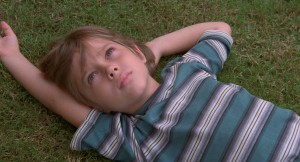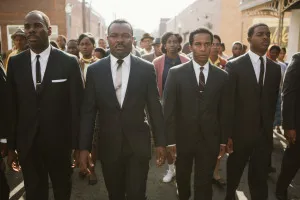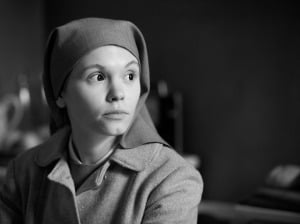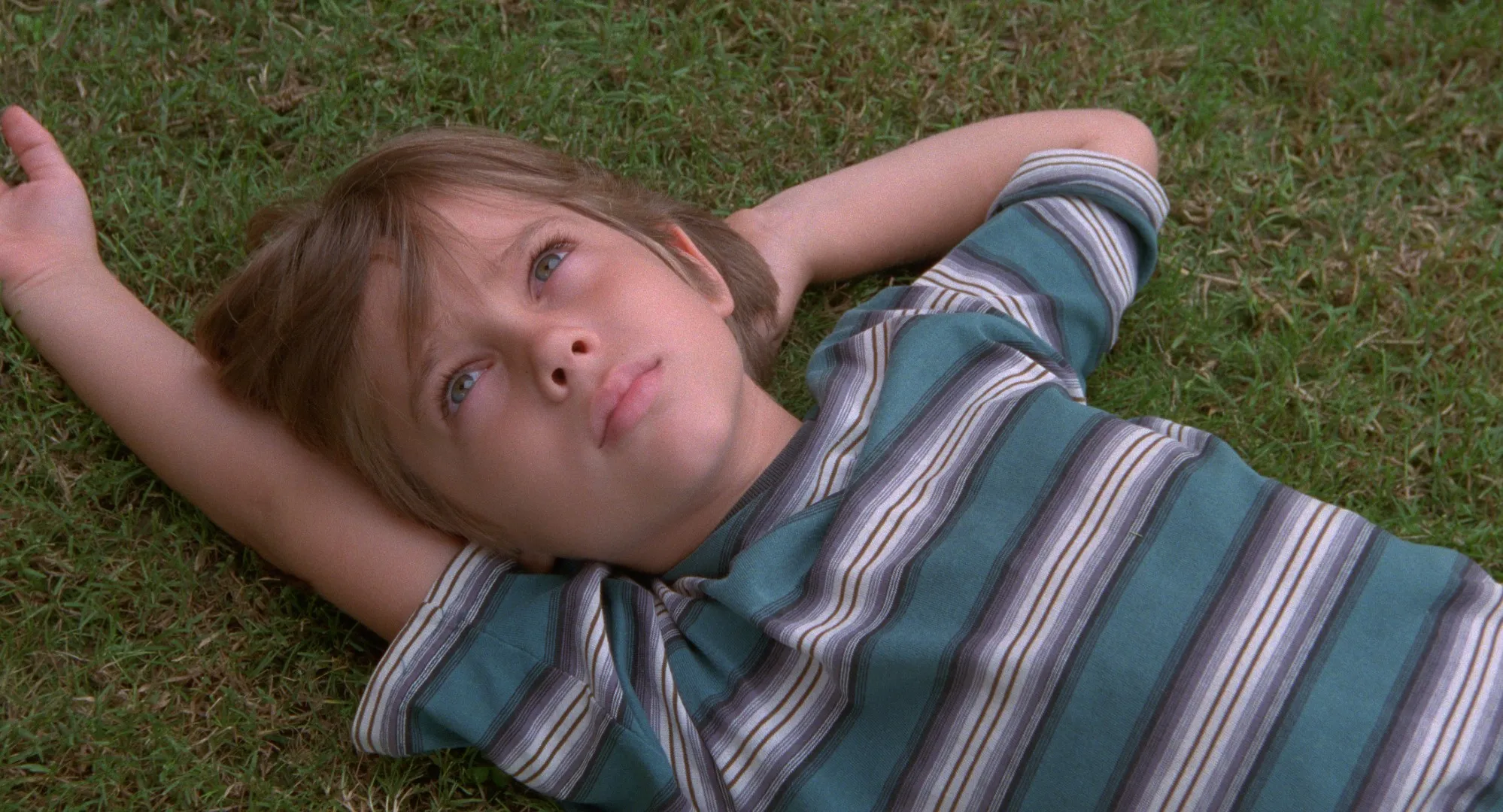Full of overhyped and overpublicized misfires, 2014 was, in many ways, a year of letdowns and could-have-beens. In the festival circuit, good (not great) became the word of choice with films like “The Imitation Game,” “Theory of Everything” and “The Judge” struggling to connect with audiences. Meanwhile the holiday season yielded a number of awards bait prestige flicks — including “Into the Woods,” “Big Eyes” and “Unbroken” — all of which failed to live up to inflated expectations. Fortunately, however, 2014 was not all gloom and doom in the world of cinema. In a year of disappointments, the following films — understated and powerful — managed to break the mold of inadequacy, to overachieve in a year of irregular underachievement.
1. “ Boyhood”

Filmed in real time over a period of 12 years, Richard Linklater’s “Boyhood” could have easily sunk into the realm of cinematic stunt, yet to call the film anything less than a masterwork would be utter blasphemy. Linklater’s gem is uniquely beautiful, one of the most heartfelt and truthful films to grace the silver screen. Tracing the childhood of Mason, a shaggy kiddo played by the snub-nosed Ellar Coltrane, “Boyhood” is essentially a do-over of, well, boyhood. Packed with millennial nostalgia and timeless “throwbacks,” this simple decades-spanning epic is truly the rare film that manages to understand youth in all its glory. “Boyhood” lacks the air of detached triteness so characteristic of films about juvenile culture and as a result, the flick becomes sublimely real; you can almost feel the blood coursing through its veins. All in all, “Boyhood” took my formative years, blew off the dust, and seamlessly conjured up every youthful feeling I thought I would never experience again. “Boyhood” works because it stays true to its source material. This is juvenescence in reality.
“Boyhood” will screen on Sunday, Jan. 11 at 8 p.m. in Cubberley Auditorium as part of the Stanford Flicks program. The film is also available on DVD and Blu-ray, as well as to stream online via iTunes, Amazon and other sources.

Publicist-turned-director Ava DuVernay’s “Selma” is a small triumph. Neither flashy nor ostentatious, “Selma” prefers to look closer, to dig deeper and, as a result, manages to transcend the many clichés of the contemporary biopic. In DuVernay’s take on history, King was a man, brilliant and imperfect, not alone in his endeavors but surrounded, on all sides, by a cadre of courageous individuals. DuVernay neither apotheosizes nor isolates King and instead elects to humanize and contextualize the famed civil rights champion. The result is a film that feels boldly original and surprisingly idiosyncratic. DuVernay’s “Selma” does not concern itself with some distant legend but instead revolves around a realistic and comprehensible human being. Here, with DuVernay at the helm, history is made intimate – both personal and, as a result, relatable.
“Selma” opens in the Bay Area on Friday, Jan. 9. Read The Daily’s full review of the film here.
3. “Mommy”

Though it won’t receive a stateside release until early 2015, the Canadian “Mommy” received a brief Oscar qualifying run in December 2014 just in time to make this year’s list. The latest in Xavier Dolan’s cinematic portfolio, “Mommy” represents the Québécois wünderkind’s most mature feature to date. Filmed in an experimental array of aspect ratios, “Mommy” burns with the fiery exuberance of a young, and talented, voice: one that has something to say but never manages to take itself too seriously. Burdened with a screenplay that is wittier than it has any right to be, “Mommy” tears into cultural notions of normality — in the Dolan-verse no subject, from masturbation to incest, is off limits — painting an exquisite picture of a dysfunctional family so shattered it puts the Sopranos to shame. And, as this ragged family strays further and further toward the edge, Dolan veers from laughter to tears at breakneck speed, submerging the audience in the spontaneity of living. Dolan dares to try something new. Hollywood, take note.
“Mommy” will be released in cinemas later this year. You can also read The Daily’s coverage of the film from the 2014 Cannes Film Festival here.

4. “Obvious Child”
From the opening underwear monologue to the film’s brilliantly executed, and impromptu, dance routine, “Obvious Child” is just having a good time. Sure, it’s about abortion — not exactly the most uplifting topic, I’ll give you that one — but writer-director Gillian Robespierre never makes “Obvious Child” about abortion… per se. In Robespierre’s astoundingly competent hands, the decision whether or not to proceed with her unplanned pregnancy is not some drawn-out, agonizing process, it’s merely a thing that happens, a matter of fact. And that’s what’s so beautiful about Robespierre’s debut feature. “Obvious Child” is, at its core, a film about a captivating woman, Donna (played by the wonderful Jenny Slate), and the rest is just background noise. The titular child isn’t the embryo in Donna’s belly but Donna herself, a 20-something stalwart who lacks the self-confidence to fight for her desires.
“Obvious Child” is now available on DVD, Blu-ray and to stream online via iTunes, Amazon and other sources. Read The Daily’s full review of the film from June here.
5. “Ida”

It was an excruciating war of psychological aggression (my apologies to both “The Lego Movie” and “Nightcrawler”), but I physically could not resist throwing this one on the list. “Ida” is an odd bird. Shot in black and white, filmed on a micro-budget and boasting a tremendously brief run time, “Ida” is the underdog of the century. But in an age of bloated three-hour epics, Ida’s simplicity is excitingly reinvigorating. Here is a nun, Catholic (at least as far as she knows), quiet and not quite ready to take her vows. Here is her aunt, a proud Jew, not quite ready to let her last remaining relative surrender her life to the church. Put them on a road trip across post-World War II Poland in search of the burial grounds of their murdered forebears and you have “Ida”: a film that will warm your heart and break it in a succinct 82 minutes. Now that’s my kind of movie.
“Ida” is now available to stream on Netflix. It is also available to rent from Green Library’s Media and Microtext Collection.
Honorable Mentions: “Nightcrawler,” “Guardians of the Galaxy,” “Gone Girl,” “Interstellar,” “The Lego Movie” and “Inherent Vice.”
Contact Will Ferrer at wferrer ‘at’ stanford.edu
